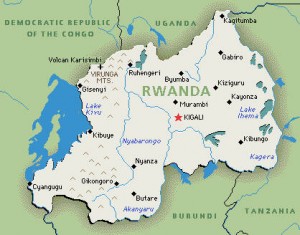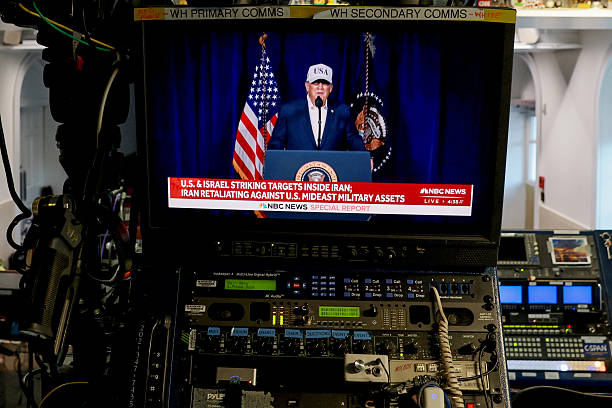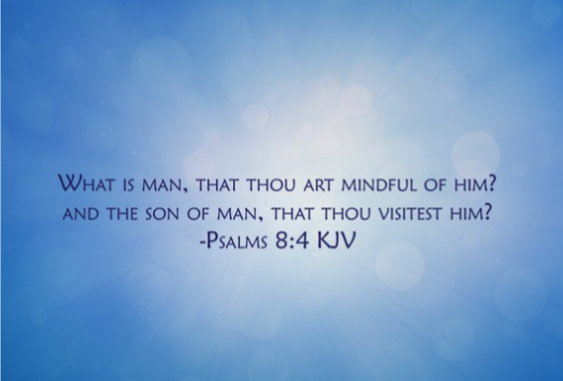(ThyBlackMan.com) When the average American thinks of Rwanda, there are two thoughts that come to mind—genocide and gorillas.
During the early 1990s, Rwanda killed almost 1 million of its own people in a brazen display of ethnic cleansing. As with the Jewish Holocaust, the world stood idly by and pretended that they saw nothing!
Rwanda is also known to contain an estimated 1/3 of the world’s mountain gorillas.
This is the extent of the knowledge most Americans have about Rwanda. Americans are partly to blame for this lack of knowledge, but I put the biggest blame on the country of Rwanda itself.
Rwanda has a very appealing story to tell, but like most African countries, they display little understanding of the importance of engaging in direct dialogue with the American people. Better to have friends and not need them, than to need friends and not have them.
Rwanda has made tremendous progress on several fronts since the genocide of 1994. Transparency International, an anti-corruption watchdog group, has listed Rwanda as one of the least corrupt countries in Africa, they are  connected to the underwater fiber optic cable off the coast of Kenya that enables them to have faster, more reliable internet connectivity, and they have been cited as one of the top 10 African countries to invest in.
connected to the underwater fiber optic cable off the coast of Kenya that enables them to have faster, more reliable internet connectivity, and they have been cited as one of the top 10 African countries to invest in.
Last December, U.S. Trade Representative Ron Kirk and Rwandan Minister of Trade and Industry, Francois Kanimba ratified the U.S.-Rwanda Bilateral Investment Treaty (BIT). The U.S.-Rwanda BIT was signed in Kigali in 2008 and the United States Senate unanimously approved the treaty on September 26, 2011. The treaty provides investors with legal protections that underscore the two countries’ shared commitment to open investment and trade policies. These protections include non-discriminatory treatment of investors and investments; the right to freely transfer investment-related funds; prompt, adequate, and effective compensation in the event of an expropriation; freedom from specified performance requirements, such as domestic content or technology transfer requirements; and provisions to ensure transparency in governance. The treaty also gives investors in all sectors the right to bring investment disputes to neutral, international arbitration panels. USTR and the Department of State co-led the negotiation of this treaty.
The critics of Rwanda continue to site the human rights abuses by the Rwandan President, Paul Kagame (as reported by Amnesty International). The country is also criticized for its lack of a free press and the jailing or murder of those who speak out against Kagame. Most Western diplomats in the region are well aware of Kagame’s alleged role in fostering conflict in and stealing minerals from the Democratic Republic of Congo.
Most Americans don’t follow Rwanda enough to discern the truth about Rwanda. That’s why I am puzzled that neither Kagame or his government ever interacts with the media when in the U.S., especially the Black media.
Africans constantly complain about the way Africa is portrayed in the U.S. media (war, famine, corruption), but yet they do nothing to change that portrayal. They constantly call us “brother,” then they go to CNN. They tell us to “come home” (meaning come to visit Africa), but they go visit the U.S. Chamber of Commerce, the Corporate Council on Africa, or the Council on Foreign Relations (all mostly white organizations).
Can you remember the last time an African president has given a speech at a Black university, met with Black businessmen, or met with Black media?
You can substitute any other African country for Rwanda and the storyline would be the same. Rwanda and Kagame have a worthwhile story to tell, so I am dumbfounded that they don’t take advantage of the interest Americans have in beginning a dialogue with Rwanda.
Can you imagine Michael Jordan hitting the game winning shot and then asking the media not to say anything? Or Barak Obama winning the presidential election and refusing to talk about his victory? Or you discovering the cure for cancer, but not wanting anyone to know?
So, my challenge to Kagame and Rwanda is to begin a dialogue with the American people beyond that of the white power structure. There are over 200 Black owned newspapers in the U.S. who would be thrilled to have an on-the-record conversation with Kagame. There are hundreds of Black owned businesses from every sector who can be a great vehicle for the sharing of ideas, but also possible investors.
If the Rwandan brand wants to move beyond the genocide and gorillas, then they must educate the American people about the progress made in their country; and the only way to do that is to begin a dialogue with the various centers of influence (COI) within the U.S.—Black media, businessmen, universities, etc.
Currently, Rwanda is viewed very negatively within the U.S. and that will be difficult to change until Kagame and his whole government decides to engage the American people. That must begin with Kagame reaching out well beyond white America that he is so accustomed to engaging with.
Kagame must set the tone, then his ministers, and finally those in the embassy here in the U.S. This type of initiative will not only help with Rwanda’s political agenda, but also create more possibilities for increased investment in the country.
In marketing terms, Rwanda is a damaged brand. The only way to improve Rwanda’s brand is by initiating a strategic, well thought out dialogue with the American people.
Kagame has never explained to the American people why we should care about Rwanda, what Rwanda has to offer America, or why Rwanda is in America’s vital national security interests. Two fundamentals in any educational campaign are: to build market awareness and then give a call to action.
Kagame has a real opportunity to show other African leaders how to engage the American people in a way that leads to more investment in and understanding of his country. An educated America is his best ally. Maybe it’s time for Rwanda to rebrand it’s approach to the American people.
Staff Writer; Raynard Jackson
Mr. Jackson is also founder of a political and industrial consultant firm which is based in Washington, DC; Raynard Jackson & Associates.

















To Tina (i.e., the lady who took the time – on May 2, 2012, 10:30am – to make a comment and share that article from “Rwandatimes”); THANK YOU VERY MUCH, Sister! Time for people like Jackson to come to Rwanda and see for themselves how much progress we’re making. We’d be grateful for whatever asisstance can be offered from elsewhere, but we are now FULLY CONFIDENT that we can indeed do it on our own without “reliance” from the USA (…or from African-Americans, as you seem to suggest)! Our future will NOT be determined by the whims of our leaders’ dealings with you…not at all. In essence, President Kagame is NOT obliged to justify himself to anything or anyone other than we who are citizens of Rwanda (…note that I am making that statement with full confidence in my nation and Head of State). The international media can portray President Kagame, and Rwanda, in any way they wish, but with all due respect; what you think about us, and how you think it, is none of our business. Our greatest concerns are the issues here at home (…NOT when, where, how, and if our President will mix and mingle with black Americans or not!). So Mr. Jackson next time you want to write about Rwanda; ‘EITHER’ think twice ‘OR’ do more “quantitative” than “qualitative” research. Make a closer statistical analysis, if possible, and you’ll clearly see that numbers speak for themselves. The stats (not the heresay) will give you much better concurrent, contemporaneous, and level-headed facts to write about our country. Cheers… .
Mr. Jackson,
Rwandans are a resilient and self-belief”people! Just come visit us and see for yourself! You will go back to USA,convinced, turned a “Rwandan’s turned spokesman”
Check this out: http://www.newtimes.co.rw/news/index.php?a=53104&i=14979
OPINION BY JOSEPH RWAGATARE,
1 MAY 2012
SOURCE: The New Times
Nothing empowers people like self-belief. With loads of it, you can move mountains or turn deserts into fertile plains. Even the most fatalistic get so inspired by the feeling that they are able to act and have impact and cause real change.
Conversely, nothing is as stultifying as the absence of faith in the ability to make anything happen. The feeling of inability is so numbing that people are literally frozen into a permanent state of inaction. They are resigned to anything ever happening for them.
These contrasting states tell the story of Rwanda of the past fifty years. They represent the different fortunes of the country resulting from two different philosophies of the management of society.
The first is the current state in which Rwandans feel confident enough to change their lives and turn around the fortunes of their country. It is the period whose lessons about how they have done it are much sought after from across the world.
This is the period when the philosophy of management has changed from ruling to leading, from giving orders to offering directions about what should be done. It is the time when people are given encouragement, not harangued, in which the appeal is to their sense of self-worth, self-belief and own ability.
In almost all cases of calls to action, the message is carried in slogans or memorable phrases that capture the spirit of the moment. Slogans by definition are about two things – a rejection of the status quo and, therefore, call for change, or satisfaction with the current state of affairs and so a call for conservation. But whichever position, the effect is the lighting of the fire of belief in their ability to alter or maintain the situation, often for the better.
We all remember the effect of US President Barack Obama’s “yes we can” and “change we can believe in” slogans in the last presidential campaign. Closer to home, in Kenya, “Harambee” had a strong impact until politicians abused it.
In Rwanda, today, we may have no classical slogans, but there are plenty of memorable words that have the same effect. Agaciro (dignity or self-worth) is probably one of the most recognisable words in Kinyarwanda today, used by all – the mighty and lowly – and whose meaning is the same for all. But most significant is the recognition that it is only they, not anyone else, who can bestow Agaciro on themselves by their actions and attitudes.
Then there are others which urge Rwandans to achieve the most they can, to extend themselves to the limits of their potential, not to be content with the ordinary or the mediocre. And so we often hear President Paul Kagame urging Rwandans to “be the best you can be”.
Similarly, the President has on many occasions discouraged dependency and instead pushed for taking charge of their lives by appealing to the people’s sense of pride. He asks whether they are happy living off other people’s left-overs, or being looked after by others when God gave them so much.
There is no doubt that these exhortations inspire people to apply themselves some more so as to be masters of their own situation. And they work because there are encouragements worth taking up, not because they are edicts that you ignore at your peril. Persuasion and not coercion is, in any case, the essence of good leadership.
It has not always been like this. There was a time when Rwandans were lulled into the stupor of inaction. It was a time when those in power actually ruled. They ordered and directed that things be done in a particular manner or there would be dire consequences. The people were made to sing and dance to tunes composed at party headquarters and to repeat slogans coined by the head of state that extolled unproductive agriculture as if it was a virtue.
In any event, the slogans were so unvaried that they became clichés incapable of inspiring the people to greater useful action. Little wonder, then, that there was no qualitative improvement in the Rwandans’ lives.
They did nothing for self-belief. Actually official pronouncements often discouraged initiative of any sort and denigrated any effort at personal or national improvement. Instead, they lulled the people into dependency and taught them to expect and be grateful to handouts from supposed do-gooders.
It is from this stultifying state that we have been recovering and distancing ourselves for nearly two decades now.
That distance is evident in President Kagame’s interactions with citizens. The message at these events is about doing more, being better and rising to a higher level – individually and collectively.
It speaks to human aspirations to a better life. The result is what has been called the Rwandan miracle. Put another way, the miracle comes from the belief that it is possible and within our means to alter our lives. That is the meaning of empowerment.
Mr. Jackson, the perspective(s) depicted in your article – about President Kagame, Rwanda, and the US-Rwanda relationship – portray NOTHING more than academic “arrogance” and “ignorance” combined…!
Rwanda has made attempts to reach out to African- Americans, President Kagame is has met with with Rev Jesse Jackson and Jesse Jackson actually attended Rwanda Day, an event that took place in Chicago last year. I think at this point, you should look towards your own community and ask why they do not reach out to not only Rwanda but African countries in general. How many Black entrepreneurs are interested in starting businesses on the continent? How come the black media does not reach out to educate their own people about Rwanda? The image people have of African- Americans is not exactly the best so maybe this black media should do better at marketing themselves to Africa.
Rwanda has investors coming from Europe, Asia and the Middle East, so again ask yourselves is it really the problem of Rwandan marketing or the fact that Americans (whether white or black) are just not interested in the Rwandan story.
Why should Kagame feel obligated to reach out to black Americans when they stood by in 1994 and failed to pressure the US government to do anything? He has bigger concerns with the DRC to the west and Burundi to the south, not to mention lingering issues such as post-genocide justice and repatriation.
You mention:
“In marketing terms, Rwanda is a damaged brand. The only way to improve Rwanda’s brand is by initiating a strategic, well thought out dialogue with the American people.”
I would point out that Rwanda is an example of impressive development given the brutality of the genocide only 18 years ago. The rural policies that have been pursued since 2000 under Vision 2020 have been slowly but surely bettered the livelihoods of many rural poor and the model of development is beginning to be incorporated in other east African countries. Rwanda is anything but a damaged brand from a comparative perspective. In fact, it is one of the most economically progressive countries on the continent.
Like that. New approach here described. Myself I have never thought that way and I believe it worth a try to be aggressive by engaging with people that can better understand Africa (blacks). Kagame is doing well, but improvements are needed from Government especially when it comes to investors in Rwanda. I can take this article as a wise advise from our brothers in US 🙂
Like that. New approach here described. Myself I have never thought that way and I believe it worth a try to be aggressive by engaging with can better understand Africa (blacks). Kagame is doing well. I can take this article as wise advise brothers in US 🙂